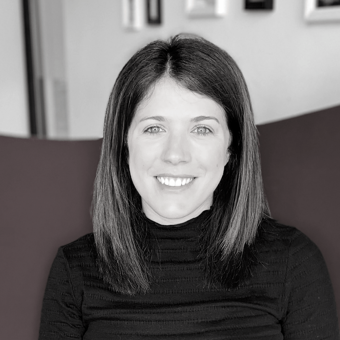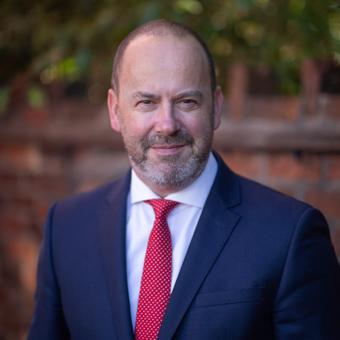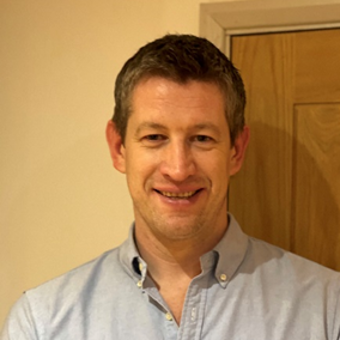Karen Williams was group legal director at the facilities management giant Mitie before leaving in October 2024 to set up as an independent contractor. She shares and reflects on her career path with the Brief, and explains the importance of creating psychological safety within teams and building broad networks of colleagues when moving to an in-house role
Until October 2024 Karen Williams led the legal team that supports a £1.32bn division of the facilities management and services provider Mitie. This division, she says, “deals with hard engineering sector and integrated facilities management solutions for all manner of customers.”
The overall legal team at Mitie numbers around 28 individuals. Within this the three-strong technical services team with which Manchester-based Williams worked day-to-day focuses on issues arising from the winning and retendering of business, as well as contractual matters and some contentious work which varies from low-level disputes to high value litigation and adjudications.
“It involves all manner of business issues, giving a legal and commercial risk-based, common-sense view of how best to resolve them,” she says.
“It pulls in all kinds of aspects to the work that the company does, whether that’s learning about public sector pensions, data protection breaches, TUPE transfers, supporting technology strategies or legislation that’s coming over the horizon like the Building Safety Act. It’s a never-ending learning experience.”
Not enough arguing
Williams worked in-house from an early stage in her career. Having studied German at University she “realised there wasn’t enough arguing in German-related career options for my liking” and started thinking seriously about other career options. So she embarked on a law conversion course, took her LPC, then joined the former Manchester firm Halliwells as a trainee.
Her time as a trainee included a period of secondment to the pharmaceuticals giant Astra Zeneca, and she qualified into intellectual property, IT and commercial. In total she spent four years with Halliwells before taking an in-house role at the Co-operative Insurance Society in 2001.
The move from private practice to in-house was prompted, she says, by a desire to connect more closely to the outcomes of advice given and understand things from the client’s perspective. At the time there was a big explosion with the internet and related copyright and trademark issues. The role at the Co-operative Insurance Society focused on managing the business’s IP interests and commercial sponsorship strategies.
Commercial compromises
She was also attracted by the pragmatic approach to problem-solving that characterises in-house work. “It comes down to remuneration models,” she says.
“When I was in private practice, certainly back in those days, it was all about the billable hours, which leads you into taking a certain approach.
But when you are in business sometimes the answer isn’t to go fully legal (whether that is litigious or in terms of non-contentious) straight away – quite often it is to take a step back and see the bigger picture for the business’s interests, and then to find a commercial compromise that suits the parties much better.
In 2005 she took a role as a legal adviser at the facilities management arm of Dalkia plc, which, she says, provided the more pressurised, dynamic business environment that she was looking for at the time. Dalkia Energy and Technical Facilities Management Limited, the subsidiary for which Williams worked, was acquired by Mitie in 2009, and her role transferred with it.
Psychological safety
Having held a leadership role for more than a decade, Williams is now focused not just on the provision of legal advice, but on the importance of building trust within teams, and she speaks on this subject at industry conferences.
“To build trust the key element will always be psychological safety,” she says. “I think it’s very important to bring your authentic self to work, and in order to do that you have to believe that you won’t be judged, that you will be encouraged and supported to do the best job that you can.
“Nobody will go and do a fantastic job in a new area straight away, so it’s about being able to open oneself up and have a general appreciation, both upwards and downwards, that making mistakes is part of the process of learning, and being supported in that.”
Lawyers, she continues, can be particularly reluctant to admit to mistakes, “sometimes even to themselves”.
The truth, she continues, is that, “We all get better through things we wish we had done slightly differently. The ability firstly to recognise that within oneself, and then the possibility to discuss that with others (particularly when that can be with intelligent, similarly trained individuals who nonetheless have different perspectives, personalities and experiences) can be really valuable and unlock innovation going forward. Both innovation and productivity get improved, team members are happier and it’s just a win-win for everyone.
But, to have those open discussions, that psychological safety needs to be there. One needs to feel that, as a team member, one will not have one’s reputation tarnished or be spoken about behind one’s back after opening up to others or the group.
When a culture of psychological safety is embedded in a team, she continues, it can result in really high-performing teams. “As soon as people can bring their authentic selves to work and feel that they can learn through their mistakes and other people’s mistakes then you have a massive advantage in a number of areas,” she says.
“People feel comfortable in themselves and comfortable that they’re learning, and that is of massive benefit to the business as well.”
Stakeholder mapping
Having spent more than two decades in-house Williams acknowledges that many things will have changed in private practice since she last worked in that environment. However, some things remain constant, and she says that anyone considering making the move from working in a law firm to in-house should be prepared for very different structures and career paths.
She explains, “In private practice there’s an expected career path whereby if you put in the billable hours, you bring in opportunities and clients, and impress your line management, then that will bear fruit and result in progression. The people that you need to influence in private practice are less the clients than your fellow legal professionals, particularly those who are making the leadership decisions on who will progress through the next round of promotions.
“In-house is very different and you will have a lot more, very different, stakeholders. One of the first things you should probably do, therefore, which is outside most lawyers’ comfort zone, is to think about stakeholder mapping within the new role, and who the key people are with whom you will be collaborating, and in turn who are the influencers of those with whom you are collaborating.”
This means, she says, looking beyond the legal team. “The sooner you realise that it’s up to you to build your network of expertise and friends, the better,” she continues.
This isn’t (just) about hierarchies and people at the top of the organisation, it’s about people you can help and who will help you back. Have a real think about what sector you’re going into, what type of people you’ll be dealing with and what you want to get out of it.
She also says to have a two-year plan, when embarking on a new role: “People talk about five-year plans but actually I think we’re more in a two- and three-year plan world. And you need to have a plan B in case it isn’t going to plan and you’re not enjoying it after a year-and-a-half to two years.”
Finally, she says to bear in mind that every in-house role is different. “There is much more variability between in-house roles, and the businesses and teams that you can land with than there is in private practice,” she concludes.
Visit
Connect with Karen Williams via LinkedIn










